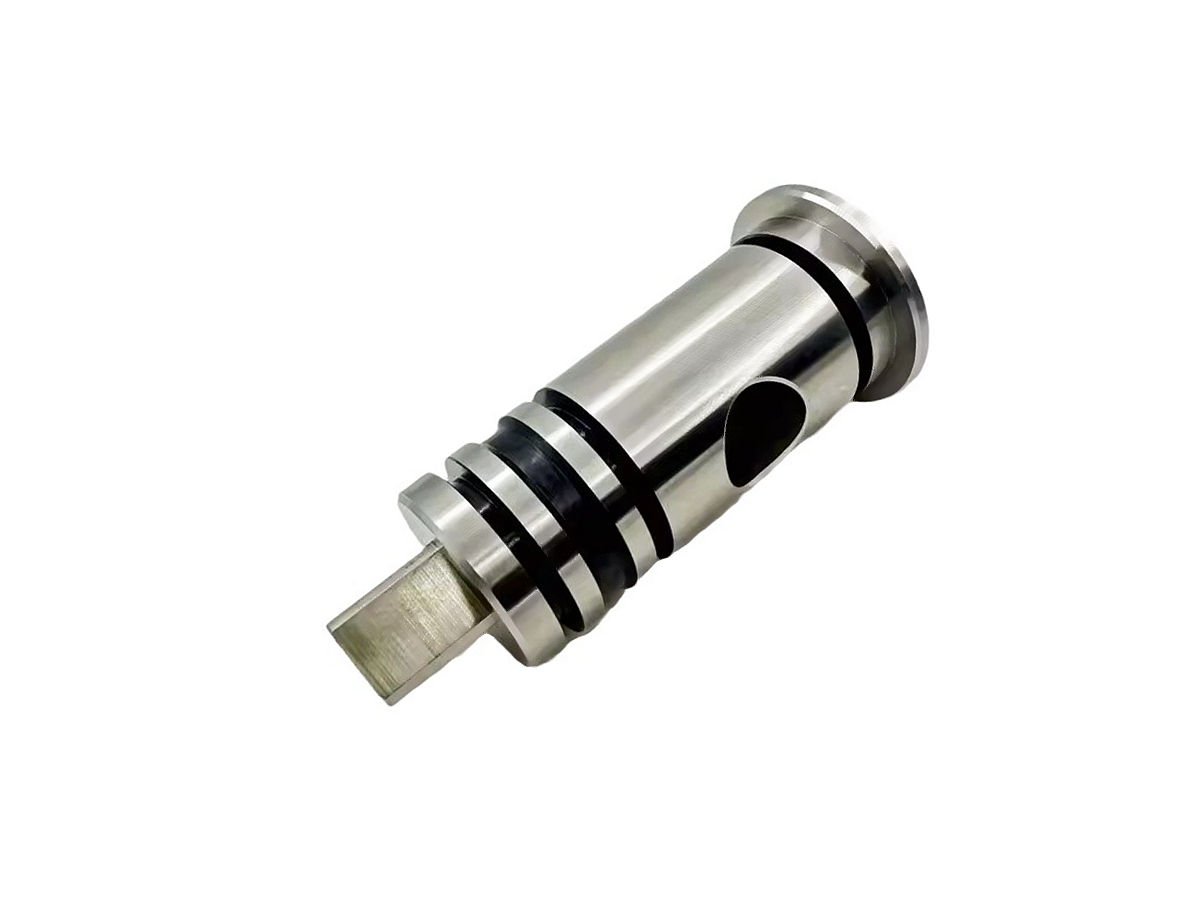Titanium Deep Hole Drilling: Overcoming Challenges in the Medical Device Industry
Precision Engineering for Biocompatible Implants and Instruments
Medical devices demand ultra-precise deep holes in titanium alloys for applications like bone screws (Ø1-5mm, L/D 20:1) and neurovascular catheters. Titanium’s low thermal conductivity and work-hardening tendencies make traditional drilling methods ineffective. Multi-axis deep hole drilling services achieve ±0.01mm straightness in Ti-6Al-4V using high-pressure coolant (1,000+ psi) to prevent thermal damage.
The rise of minimally invasive surgery requires Ti-6Al-4V ELI with electropolished surfaces (Ra <0.2μm) to reduce bacterial adhesion while maintaining 860 MPa tensile strength for load-bearing implants.
Material Selection: Balancing Biocompatibility and Machinability
Material | Key Metrics | Medical Applications | Limitations |
|---|---|---|---|
830 MPa UTS, 0.13% O₂ content | Spinal rods, dental implants | Requires cryogenic drilling below 150°C | |
550 MPa UTS, 99.5% Ti purity | Surgical instrument shafts | Limited to <3mm hole diameters | |
620 MPa UTS, 15% elongation | Endoscopic tube components | Not suitable for permanent implants | |
1,000 MPa UTS, 0% Ni content | Orthopedic trauma plates | High tool wear during drilling |
Material Selection Protocol
Load-Bearing Implants
Rationale: Ti-6Al-4V ELI’s optimized oxygen content (<0.13%) prevents brittle fracture in Ø1.5mm screw holes. Cryogenic drilling with LN₂ (-196°C) maintains hole straightness within 0.015mm/m.
Validation: ASTM F136 fatigue testing confirms 10⁷ cycle lifespan under 500N cyclic loads.
Flexible Instruments
Logic: Ti-3Al-2.5V’s 15% elongation allows the drilling of 0.5mm diameter holes in 20:1 L/D ratios without fracture, critical for steerable catheter lumens.
MRI-Compatible Devices
Strategy: CP Grade 4’s non-ferromagnetic properties enable artifact-free imaging, with passivation ensuring ISO 10993-5 biocompatibility.
CNC Drilling Process Optimization
Process | Technical Specifications | Applications | Advantages |
|---|---|---|---|
0.5-10mm Ø, 0.015mm/m straightness | Bone screw pilot holes | Achieves 40:1 L/D ratios in Ti-6Al-4V | |
5-30mm Ø, 0.03mm surface finish | Orthopedic nail canals | 50% faster than gun drilling | |
0.1-0.5mm Ø, ±0.005mm positional accuracy | Neural probe channels | Uses ultrasonic vibration assistance | |
0.05-0.3mm Ø, no recast layer | Drug delivery nozzle orifices | Eliminates thermal affect zone |
Workflow for Spinal Implant Holes
Pre-Drilling: Center drill with 140° carbide tip (0.5mm Ø)
Cryogenic Gun Drilling: LN₂-cooled Ø1.5mm drill at 15 m/min feed
Honing: Diamond-tipped reamer achieves Ra 0.4μm surface finish
Cleaning: Multi-stage ultrasonic passivation to ASTM F86
Surface Engineering: Medical-Grade Finishing
Treatment | Technical Parameters | Medical Benefits | Standards |
|---|---|---|---|
Ra 0.1μm, 5-20μm material removal | Reduces bacterial colonization by 70% | ASTM B912 | |
30-50μm thickness, 500V dielectric | Enhances osseointegration | ISO 13779-2 | |
2μm thickness, 0.08 friction coefficient | Lubricity for sliding components | ISO 5832-4 | |
0.2mm case depth, 1,100 HV | Wear resistance for surgical tools | ASTM F899 |
Surface Treatment Logic
Implant Surfaces: Electropolishing followed by anodic oxidation creates hydrophilic surfaces with contact angles <20°, accelerating bone cell adhesion.
Articulating Components: DLC coatings reduce wear particle generation by 90% in modular hip joints.
Reusable Instruments: Plasma nitriding extends scalpel blade lifespan 5x while maintaining sharpness.
Quality Control: Medical Device Validation
Stage | Critical Parameters | Methodology | Equipment | Standards |
|---|---|---|---|---|
Material Certification | Interstitial element analysis (O₂, N₂) | GD-MS spectrometry | Thermo Fisher Element GD | ASTM F2924 |
Dimensional Inspection | Hole straightness (±0.01mm/100mm) | Laser-guided CMM | Zeiss O-Inspect 322 | ISO 1101 |
NDT | Micro-CT scanning (≥50μm defects) | 3D X-ray tomography | Bruker Skyscan 1272 | ASTM E1570 |
Biocompatibility | Cytotoxicity (ISO 10993-5) | L929 fibroblast assay | Sterile cell culture lab | ISO 10993 |
Certifications:
ISO 13485 medical device quality management
FDA 21 CFR 820 compliant manufacturing
Industry Applications
Orthopedic Screws: Ti-6Al-4V ELI + electropolishing (Ra 0.1μm)
Endoscopic Tubes: Ti-3Al-2.5V + DLC coating (0.08 CoF)
Dental Implants: CP Grade 4 + anodic oxidation (30μm)
Conclusion
Advanced deep hole drilling services enable medical device manufacturers to achieve precision titanium components with 0.01mm accuracy, meeting stringent FDA and ISO requirements. Our ISO 13485-certified machining ensures compliance from prototyping to production.
FAQ
Why use cryogenic drilling for titanium implants?
How does electropolishing improve biocompatibility?
What certifications apply to surgical instrument machining?
Can micro-drilling achieve <0.1mm holes in Ti-6Al-4V?
Surface treatment options for MRI-compatible devices?

